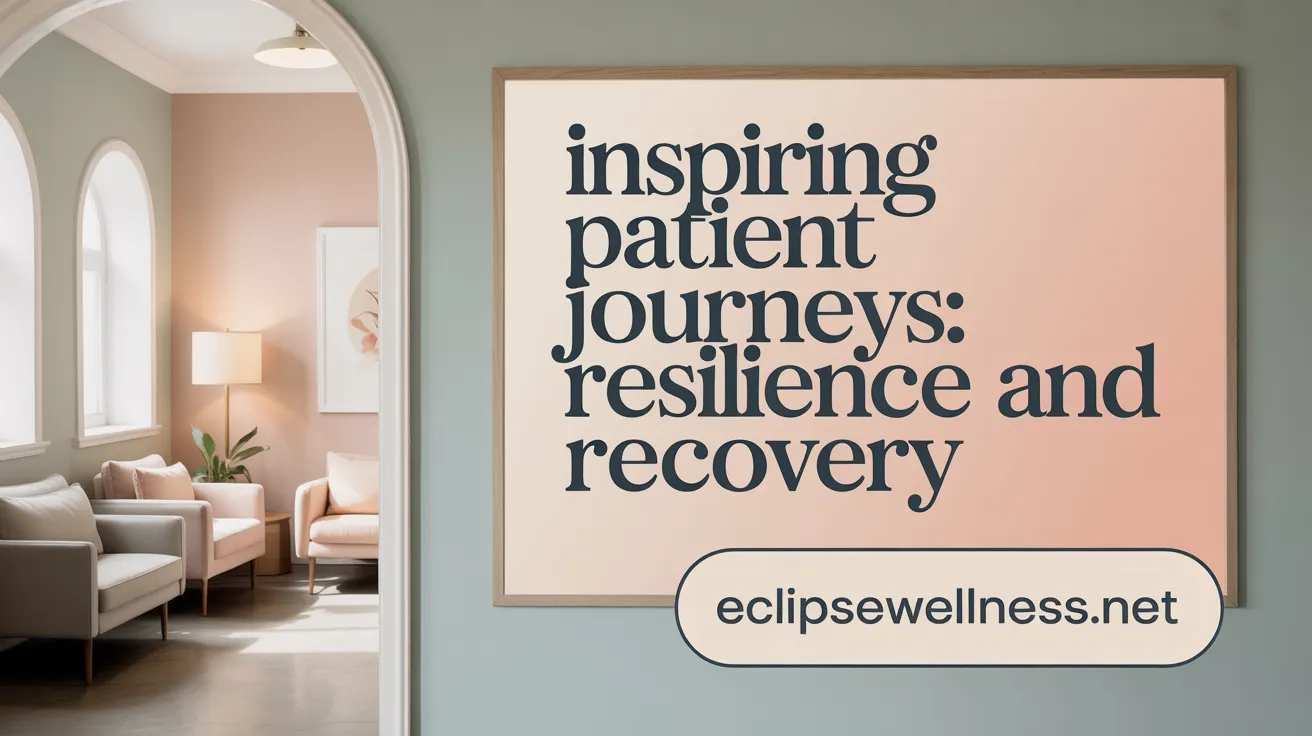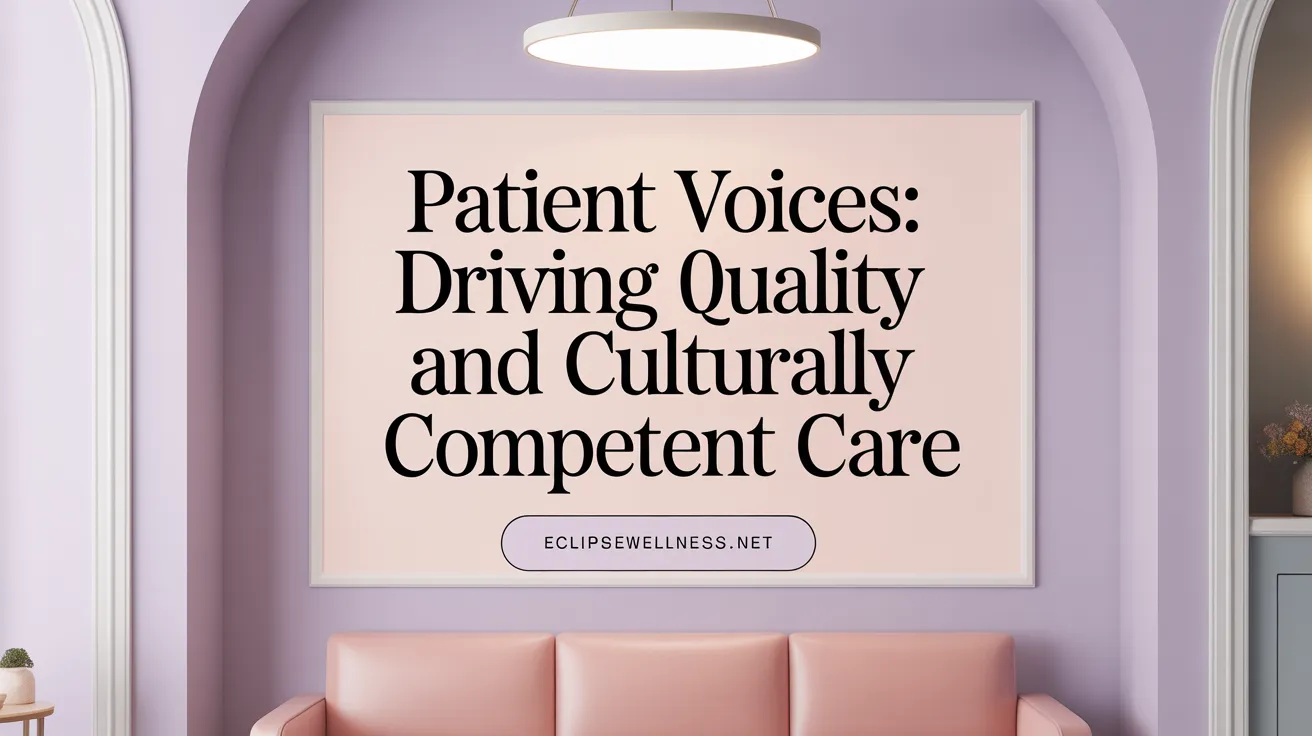Harnessing Testimonial Impact in Modern Healthcare
Patient testimonials have emerged as a cornerstone strategy for healthcare providers seeking to build trust, humanize their services, and showcase the profound impact of compassionate care. These authentic, firsthand narratives resonate deeply with prospective and current patients, fostering emotional connections that enhance confidence and engagement. Across diverse healthcare settings—from hospitals and rehabilitation centers to community clinics and mobile health programs—sharing patients' recovery journeys illustrates quality care and motivates others to persevere. This article explores how patient testimonials transform perceptions, inspire hope, and elevate healthcare communication through best practices and real-life examples.
How Patient Testimonials Foster Trust and Confidence in Healthcare Providers
How do patient testimonials influence confidence and trust in healthcare providers?
Patient testimonials serve as powerful tools for shaping perceptions of healthcare providers. They offer authentic stories from individuals who have experienced positive outcomes, providing reassurance to prospective patients. These narratives act as social proof, demonstrating that the provider delivers effective, compassionate care. For example, patients like Mark Duckworth and Karen have shared how therapy helped them recover mobility and independence, which inspires confidence in their healthcare team.
Testimonials humanize healthcare experiences by sharing real-life struggles and successes. This emotional connection helps reduce patient anxiety and builds trust. When people hear accounts of caring staff and successful recoveries, they’re more likely to feel comfortable seeking care themselves.
Research indicates that trust and patient experience are key factors influencing health-seeking behavior. Testimonials effectively highlight the quality of care, making potential patients feel confident in their choices. As a result, they are more inclined to accept treatment recommendations and follow through with care plans.
Online reviews and social media platforms have made testimonials easily accessible, shaping the reputation of healthcare practices. When used ethically, these stories attract new patients, enhance credibility, and foster stronger community bonds.
How do testimonials foster humanization and emotional connection?
Sharing personal stories from diverse patients—such as Ms. Bush’s confidence after falls or Wilma Thomas’s celebration of remission—brings a human face to healthcare. These stories resonate emotionally, allowing others to relate and feel understood.
The emotional bond created through testimonials encourages patients to see healthcare providers as compassionate partners rather than distant institutions. This humanization fosters loyalty, satisfaction, and ongoing engagement with healthcare services.
How can healthcare providers ethically and effectively utilize patient testimonials?
To maximize benefits and maintain integrity, providers should follow certain strategies:
| Consideration | Best Practice | Explanation |
|---|---|---|
| Obtain Patient Consent | Clear, documented permission | Ensures respect for privacy and legal compliance |
| Maintain Authenticity | Share genuine stories | Builds trust and avoids misleading reputation |
| Provide Context | Add relevant background | Helps interpret the story and set accurate expectations |
| Diversify Content | Showcase different demographics | Demonstrates inclusivity and broad care expertise |
| Use Multimedia | Incorporate videos and images | Engages audiences and enhances emotional impact |
| Regular Updates | Keep testimonials current | Reflects ongoing quality and improvement |
| Strategic Placement | Position stories where they are most visible | Increases reach and influence |
By thoughtfully gathering and sharing these stories, healthcare providers create a credible, humanized narrative that encourages others to seek and trust their care. This approach ultimately supports better health outcomes and stronger patient relationships.
The Significance of Sharing Patient Success Stories and Positive Outcomes
What is the importance and impact of sharing patient success stories and positive health outcomes?
Sharing patient success stories plays a vital role in advancing healthcare by showcasing tangible results of treatments and services. These stories act as authentic proof that medical interventions can lead to meaningful improvements, fostering trust between patients and healthcare providers.
Real-life narratives humanize the healthcare experience, emphasizing emotional and personal journeys that resonate with both current and prospective patients. For example, stories of recovery, like Mark Duckworth walking independently after therapy or Karen overcoming mobility challenges, motivate others to engage actively in their care.
Additionally, success stories enhance communication by bridging the gap between complex medical information and patient understanding. Visual testimonials such as videos from Eastern Healthcare Group or audio interviews can clarify treatment benefits and set realistic expectations.
Furthermore, they serve as valuable feedback for healthcare organizations. Listening to patient experiences helps identify strengths and areas needing improvement, informing policies and practices that emphasize patient-centered care.
The overall impact is significant. Positive patient stories inspire adherence to treatment plans, improve patient satisfaction, and contribute to better health outcomes. They nurture a culture of compassion and continuous improvement, ultimately leading to more effective and empathetic healthcare systems.
This approach also supports community engagement and advocacy, encouraging newcomers to seek care and share their own journeys. For instance, testimonials from refugees or individuals overcoming obstacles highlight the importance of accessible, personalized services.
In summary, sharing success stories amplifies the human side of healthcare, builds trust, motivates patients, enhances communication, and provides feedback critical to ongoing improvements. By celebrating remarkable patient journeys, healthcare providers can foster an environment of hope, resilience, and continuous Betterment.
Inspiring Real-Life Testimonials That Show Care Quality and Recovery Journeys
How can inspiring real-life patient stories demonstrate care quality and recovery experiences?
Inspiring real-life patient stories paint a vivid picture of healthcare excellence by showcasing actual journeys of recovery, resilience, and improved well-being. These narratives include diverse examples, such as patients overcoming mobility challenges, managing chronic conditions, or recovering from serious illnesses and surgeries.
For instance, the stories from Eastern Healthcare Group highlight individuals like Mark Duckworth, who regained walking independence after a fall, and Karen, who transitioned from wheelchair dependency to walking unaided. Such testimonials reflect the effectiveness of tailored treatments and compassionate support.
Highlighting innovation, Matthew Houder’s treatment with the VEPTR® device demonstrates how advanced surgical options can significantly improve life quality for children with spinal deformities. Similarly, the successful management of complex health issues, from cancer remission in Betty to stroke recovery in John, underscores the dedication of healthcare teams.
These stories go beyond medical facts; they reveal the emotional and human side of healing. Sharing patient narratives builds trust, not only by validating the quality of care but also inspiring hope in others facing similar health challenges.
By illustrating real results, these accounts motivate current and prospective patients to engage more actively in their care, fostering a sense of community and resilience. Thus, patient testimonials serve as powerful reflections of compassionate, high-quality health services that truly transform lives.
Best Practices for Effectively Using Patient Testimonials in Healthcare Communication

What are best practices for using patient testimonials effectively in healthcare communication?
When integrating patient stories into healthcare marketing and communication strategies, it’s crucial to follow ethical and strategic guidelines. First, always obtain explicit informed consent from patients before sharing their testimonials. This step not only respects patient rights but also helps maintain trust.
Protecting privacy is paramount. Anonymizing personal details such as full names, addresses, or sensitive information ensures compliance with legal standards like HIPAA. Highlighting the diversity of patient experiences—covering different conditions, backgrounds, and treatment outcomes—can resonate with a broader audience and establish authenticity.
Using various formats adds engagement value. Video testimonials, written quotes, and multimedia stories can be adapted to different platforms—websites, social media, or brochures—enhancing reach and appeal. For example, Penn Medicine and Huntington Health effectively utilize videos, allowing viewers to connect emotionally with patient journeys.
It’s also important to keep testimonials current and relevant. Regularly updating stories ensures potential patients see ongoing success and innovation in care. Display stories strategically by placing them in high-visibility areas or service-specific pages, and by categorizing content to guide different audience segments.
To gather genuine feedback, consider implementing structured surveys or prompts post-treatment. Acting on patient input not only improves services but also creates more authentic stories for marketing.
Overall, ethical collection, diverse representations, varied formats, and strategic positioning help healthcare providers build trust, improve reputation, and inspire future patients to seek care.
The Role of Patient Testimonials in Showcasing Mobile and Home Health Programs
 Patient testimonials play a vital role in illustrating the strengths of mobile and home health care services. These stories, often shared in written, video, or audio format, highlight how such programs make healthcare more accessible and convenient. For example, stories from patients like John and Betty emphasize how home health plans enable individuals to recover, manage chronic illnesses, or receive care without frequent trips to the hospital, thus showcasing the practical benefits of these services.
Patient testimonials play a vital role in illustrating the strengths of mobile and home health care services. These stories, often shared in written, video, or audio format, highlight how such programs make healthcare more accessible and convenient. For example, stories from patients like John and Betty emphasize how home health plans enable individuals to recover, manage chronic illnesses, or receive care without frequent trips to the hospital, thus showcasing the practical benefits of these services.
These personal accounts not only demonstrate the effectiveness of care but also help build trust in the programs. When patients share their positive experiences—such as improving mobility or managing complex health conditions at home—they reassure potential patients about the quality and safety of these services. Testimonials humanize healthcare providers, making the services more relatable and emotionally compelling.
In addition, patient stories serve as powerful social proof on digital platforms. Hospitals and clinics leverage these testimonials on websites, social media, and email campaigns to reinforce their reputation and attract new patients. They can influence decision-making, especially for those hesitant to try new care modalities.
Moreover, showcasing diverse patient journeys—ranging from recovering mobility to managing chronic conditions—demonstrates the wide applicability and success of mobile and home health programs. These stories foster greater patient engagement, encouraging others to participate and stay loyal to healthcare providers committed to personalized, accessible care.
Overall, authentic patient testimonials effectively highlight how mobile and home health services enhance patient outcomes and satisfaction, making them an indispensable tool for healthcare organizations aiming to promote these innovative care models.
Demonstrating the Positive Impact of Healthcare Professionals Through Testimonials
 Patient testimonials are powerful tools that showcase the compassion, expertise, and dedication of healthcare providers such as nurses and community health workers. These personal stories humanize healthcare experiences, making providers more relatable and trustworthy.
Patient testimonials are powerful tools that showcase the compassion, expertise, and dedication of healthcare providers such as nurses and community health workers. These personal stories humanize healthcare experiences, making providers more relatable and trustworthy.
When patients share their journeys of recovery, improvements, or special care received, it helps prospective patients see the real-life impact of skilled professionals. For example, stories from Patients at Eastern Healthcare Group highlight how therapy teams helped individuals walk independently after falls or regain their confidence after strokes. Such narratives foster emotional connections, making others more comfortable seeking care.
Displaying authentic testimonials on websites, social media, or at healthcare facilities builds credibility. They provide social proof that compassionate, effective care is available and deliver tangible results. This credibility not only attracts new patients but also encourages engagement and community trust.
In addition, patient feedback can motivate healthcare staff. Positive stories and constructive comments inspire teams to maintain high standards, improve communication, and provide empathetic care. For instance, an appreciation expressed by Fontaine Melus for her home healthcare team illustrates how recognition can boost morale and diligence.
Overall, testimonials serve as endorsements that highlight the human side of healthcare, reinforce professional reputation, and promote patient-centered practices. They demonstrate that healthcare professionals do more than treat conditions—they transform lives through dedicated care.
| Purpose | Method | Effect | Sample Impact |
|---|---|---|---|
| Build Credibility | Share patient stories online | Enhances trust in healthcare providers | Patients feel confident in choosing quality care |
| Humanize Staff | Use video and audio testimonials | Creates emotional connection | Patients see the caring side of professionals |
| Motivate Providers | Display feedback and success stories | Improves staff morale | Healthcare teams strive for better outcomes |
| Encourage Referrals | Showcase positive patient experiences | Expands community trust | New patients are influenced to seek care |
| Support Engagement | Share diverse stories across platforms | Builds a sense of community | Patients connect through shared experiences |
Testimonials are essential for illustrating how healthcare teams make a difference, encouraging continuous improvement, and fostering a patient-centered culture. Their impact is evident in the stories of recovery, resilience, and renewed confidence shared across health systems worldwide.
The Motivational Power of Patient Perseverance and Treatment Journey Stories
 Patients' journeys through healthcare challenges often serve as profound sources of inspiration for others facing similar struggles. These stories of perseverance highlight not only the resilience of individuals but also the effectiveness of treatment and support systems.
Patients' journeys through healthcare challenges often serve as profound sources of inspiration for others facing similar struggles. These stories of perseverance highlight not only the resilience of individuals but also the effectiveness of treatment and support systems.
Sharing experiences of overcoming medical, psychological, and social obstacles encourages hope and fosters a positive outlook. For example, patients like Mark Duckworth, who recovered from a fall and regained independence, and Karen, who transitioned from wheelchair reliance to walking independently, exemplify resilience and progress.
Such narratives do more than showcase recovery; they inspire others to stay committed to their treatment plans and remain optimistic about their futures. They demonstrate that with determination, appropriate medical care, and community support, significant improvements are possible.
Additionally, personal stories help reduce stigma associated with health conditions, fostering community understanding and acceptance. Patients like Wilma Thomas, who celebrated remission from cancer, and Tetyana, a war-affected Ukrainian seeking healthcare support, exemplify how sharing coping strategies and mental well-being practices can empower others.
Research indicates that these stories boost motivation, encourage treatment adherence, and cultivate resilience. Patients often draw strength from knowing they are not alone and that recovery is achievable through persistence.
The following table summarizes how patient stories promote motivation and community support:
| Patient Story | Health Improvement | Inspirational Aspect | Broader Impact |
|---|---|---|---|
| Mark Duckworth | Walks independently after fall | Demonstrates resilience and progress | Inspires others with mobility issues |
| Karen | Walks without wheelchair | Highlights recovery potential | Builds hope in wheelchair-dependent individuals |
| Wilma Thomas | Celebrates remission from cancer | Celebrates life's possibilities | Motivates cancer survivors to persevere |
| Tetyana (Ukraine refugee) | Recovered health through mobile clinics | Shows access to care in war zones | Encourages resourcefulness amidst adversity |
These stories exemplify diverse patient experiences, emphasizing that perseverance, supported by healthcare and community efforts, can lead to meaningful recovery and improved quality of life.
How Personal Patient Stories Provide Reassurance and Build Confidence for Patients and Families
How do personal patient stories foster reassurance and confidence among patients and their families?
Personal patient stories serve as impactful tools that create relatable connections between patients, their families, and healthcare providers. When patients hear or see stories of others who have faced similar health challenges and found solutions or hope, it helps ease fears and emotional distress. These narratives act as reassurance, proving that recovery or effective management is possible.
Sharing real experiences enhances empathy and understanding. It allows families and patients to feel recognized and heard, which fosters a sense of trust and safety. When healthcare professionals incorporate these stories into conversations, whether through video testimonials, written quotes, or live sharing, they promote openness and clarify complex medical information.
This openness helps normalize difficult experiences, such as navigating a serious illness or recovery process. Patients and families become more comfortable discussing their concerns and questions, feeling more confident in the care plan.
In addition, personal stories encourage transparency and authenticity. This builds a bond of trust that is essential for collaborative decision-making. When patients see others who have successfully managed their health, their confidence in the healthcare system grows.
Overall, sharing patient stories strengthens emotional resilience and provides a sense of community. It reassures patients that they are not alone, promotes hope, and ultimately empowers them to participate actively in their care journey.
Testimonials as a Bridge: From Patient Experiences to Healthcare System Improvement

How can feedback from testimonials be used to improve care quality?
Patient testimonials serve as powerful insights into the actual experiences of those receiving care. Healthcare providers analyze these stories to identify areas needing improvement, such as communication, responsiveness, or facility comfort. For example, stories from patients like Fontaine Melus, who appreciated home visits through a Mobile Integrated Healthcare program, validate effective services and highlight successful models worth expanding. Incorporating feedback from diverse patient voices helps hospitals tailor services to meet real needs, ultimately raising standards of care.
How do testimonials help in understanding community needs and cultural competence?
Gathering testimonials from various cultural and socioeconomic backgrounds reveals unique health challenges and preferences. Personal stories from Ukrainian refugees, Venezuelan sisters, or patients in rural areas like Georgia, help practitioners understand specific barriers—be it language, transportation, or trust issues. This understanding promotes culturally competent care, making healthcare more accessible and respectful, and ensures that services are relevant and sensitive to each community’s needs.
What role do patient stories play in developing patient-centered policies?
Stories such as those shared by patients recovering from strokes, undergoing cancer treatment, or managing chronic illnesses, demonstrate what matters most to patients—like dignity, independence, and emotional support. Healthcare institutions use these testimonials to inform policies that prioritize patient preferences, enhance communication, and foster empowerment. Policies that incorporate real patient experiences tend to be more effective and sustainable, reflecting genuine needs.
How can testimonials encourage continuous quality improvement?
Regular collection and review of patient stories create a culture of ongoing improvement. Feedback, whether positive or negative, guides staff training, protocol adjustments, and innovation. For instance, testimonials from patients who benefited from home health care or mobile clinics motivate health systems to invest in such programs. This cyclical process of listening and improving drives better health outcomes, boosts patient satisfaction, and sustains trust in the healthcare system.
| Aspect | Example | Impact |
|---|---|---|
| Care quality enhancement | Feedback from patients like John and Betty | Identifies strengths and gaps in recovery support |
| Understanding community needs | Stories from Ukrainian refugees and rural patients | Guides culturally competent and accessible services |
| Policy development | Patient-reported goals and experiences | Shapes patient-centered policy frameworks |
| Quality improvement | Ongoing testimonials | Ensures continuous care refinement |
Through actively listening to patient voices, healthcare providers can build stronger, more responsive systems that truly meet the needs of diverse populations.
Empowering Patients and Providers Through Shared Stories
Patient testimonials serve as a vital bridge connecting healthcare providers with the communities they serve, bringing intangible elements of trust, hope, and confidence into tangible narratives. By showcasing authentic experiences, these stories highlight care quality, demonstrate the profound impact of compassionate professionals, and underscore the effectiveness of innovative programs like mobile and home health services. When employed ethically and strategically, testimonials not only motivate patients to persevere and engage more actively in their care but also inspire healthcare systems to evolve toward greater empathy and patient-centeredness. Embracing the power of patient voices ultimately transforms healthcare from a transactional experience into a shared journey of healing and empowerment.
References
- 10 Great Patient Testimonial Examples For Practitioners
- Changing Lives at Eastern Healthcare Group: Success ...
- The Health Worker Who Changed My Life
- 6 Inspirational Medical Stories of Patient Perseverance and ...
- Heartfelt Stories - Care on Wheels: Mobile Integrated ...
- Improving Systems, Changing Lives
- Success Stories: How Home Health Care Changed Lives
- The influence of patient experience and patient trust on ...
